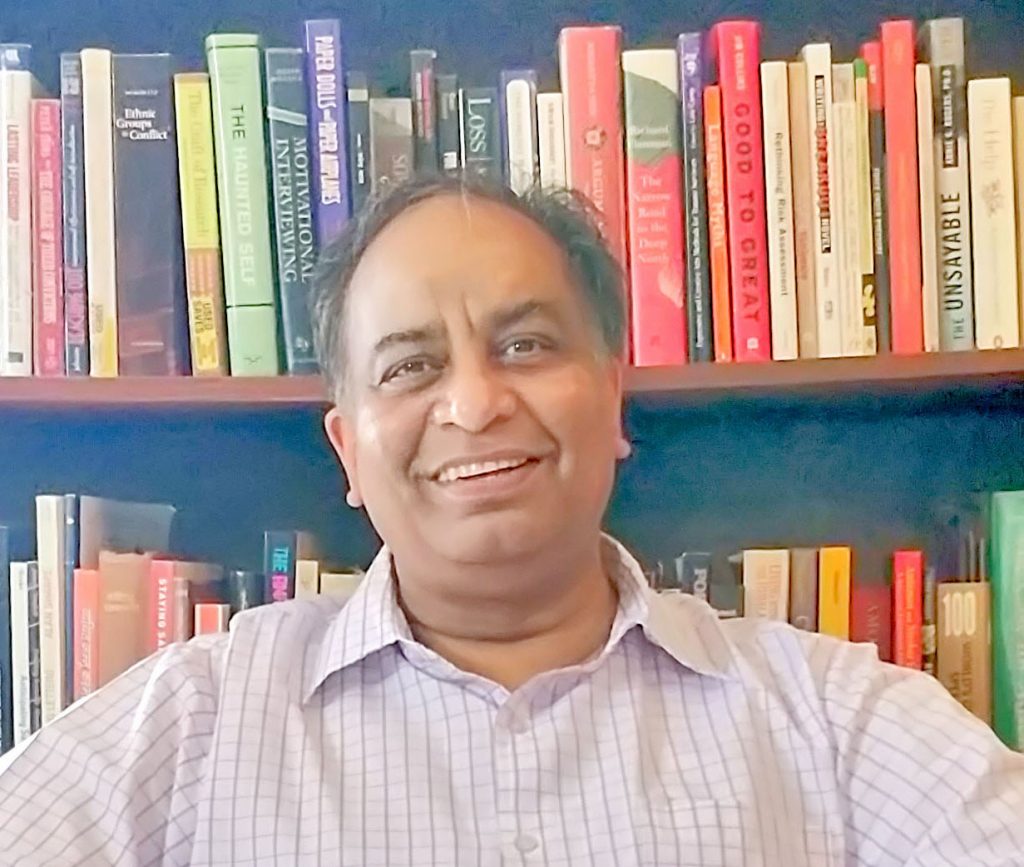
Rajat Mitra is a psychologist who has worked with the grief and trauma of people across many countries. He is a writer and a speaker on issues related to historical injustice and collective trauma. He has spoken in United Nations and also to universities, groups and audiences across the world. He has worked as a psychologist with Islamists in Thailand, terrorists in Indian prisons and also lectured to law enforcement and prison officials, human rights workers across Asia on a large number of issues.
A social entrepreneur and an Ashoka Fellow from 2004, he received United Nations Public Service award in 2011 for his work on gender justice. While enrolled in a program for world leaders in Harvard’s Program for refugee trauma, Rajat realized how art and literature can bring to light historical wrongs and trans-generational trauma which made him write his novel ‘The Infidel Next Door’, an exploration on healing and reconciliation of an intractable conflict. The book is based on events and characters that tell the reality of what happens when some of us decide to confront injustice and fight for truth after hearing the voice of conscience.
His journey towards becoming a psychologist was full of challenges. It has been an experiential path and less academic, full of obstacles and challenges that made him question his path in life. He chose a path less traveled by psychologists and worked more as an activist and human rights worker with the poor and the marginalized. He found giving hope and direction with the grief stricken more meaningful that made him search for theories of existentialism, other therapies and religious studies of Vedanta and Buddhism. It gave his life a meaning and he decided to be a psychologist and an author. Victor Frankel’s ‘Man’s Search for Meaning’ and Elizabeth Kubler Ross’s books have been his key influencers that made him what he is today. During his thirty-year career, he has worked on the grief of different groups from schizophrenics, those going through severe emotional disturbances to prisoners and radicalized youth facing life terms.
Rajat made the transition to a writing career after realizing that the stories reposed in him by survivors should not be lost to mankind. He felt a responsibility that if he doesn’t pen them down on their behalf, their voices will not be heard. Many of the survivors he worked with had died or disappeared without leaving behind any written record. Many survivors still live but are unable to pen it down in a language as they live in a mental universe chained by their past. They are survivors from many countries. The diverse groups he worked with include women and children, widowed and orphaned by separatist violence. Many are survivors of sexual assault in wars and victims of torture and atrocities.
‘The Infidel Next Door’ his first book is a story about the people in Kashmir and how their way of life abruptly came to an end facing a genocidal violence. Bigotry and intolerance by Islamists of Kashmir towards the Hindus permanently erased the last traces of a civilization that was one of the grandest and oldest in the world. He tried to give a shape to this story of annihilation in his book. But at a deeper level, it asks a fundamental question if Hindus and Muslims of India can live together and if so how?
At present, Rajat is working on his second novel ‘The Island Without a Shore’ that describes what it was like to be a revolutionary in British India and how they battled against inhuman slavery. He writes about their lives who resisted the British effort to crush the Indian civilization and spirit of the people and how it survived.
Rajat received the United Nations Public Service Award for Gender Justice in 2011. He received Nasscom Social Innovations Honors and EdelGive Social Innovation Honors for Gender Justice in 2010. He received these awards on behalf of the organization.
